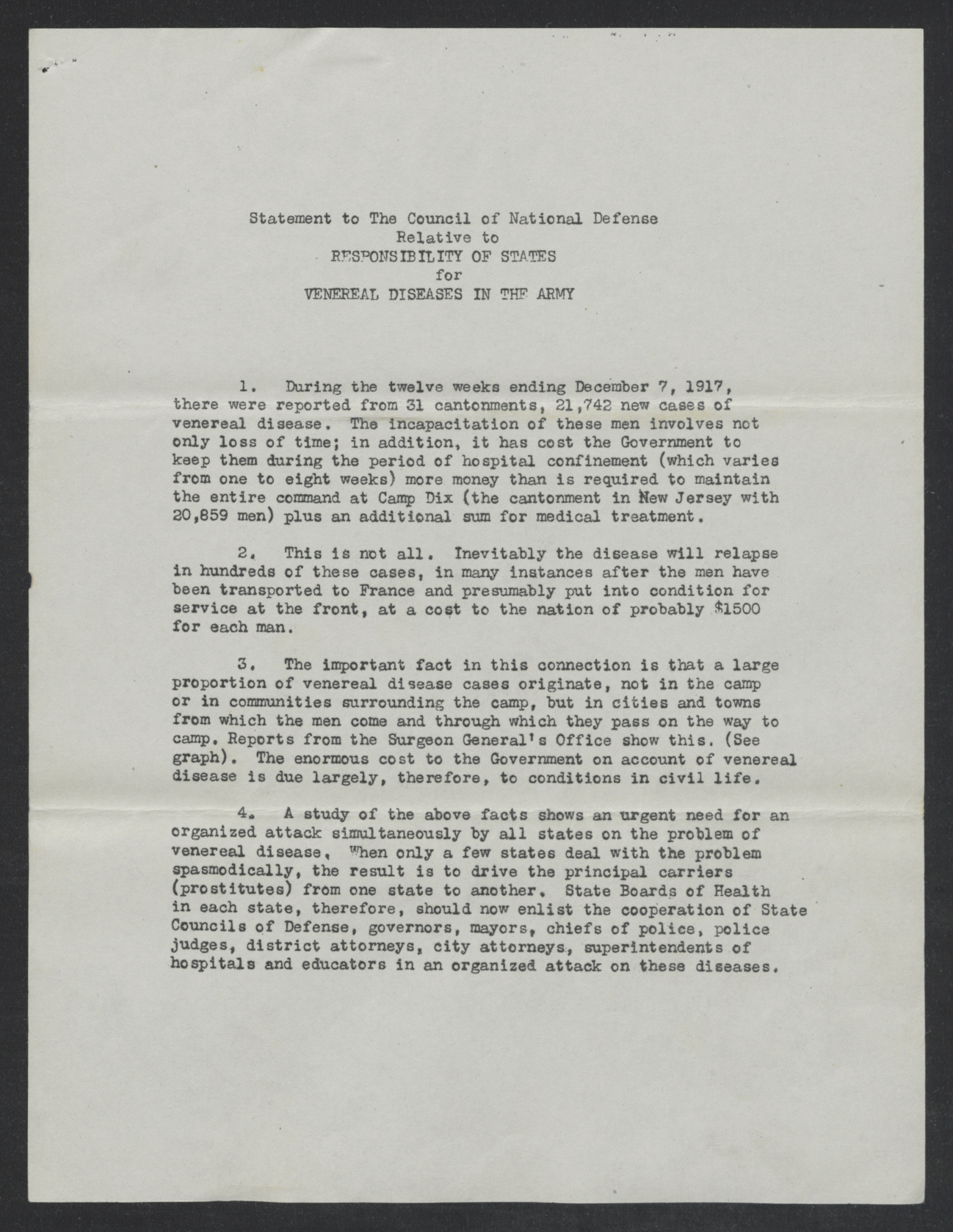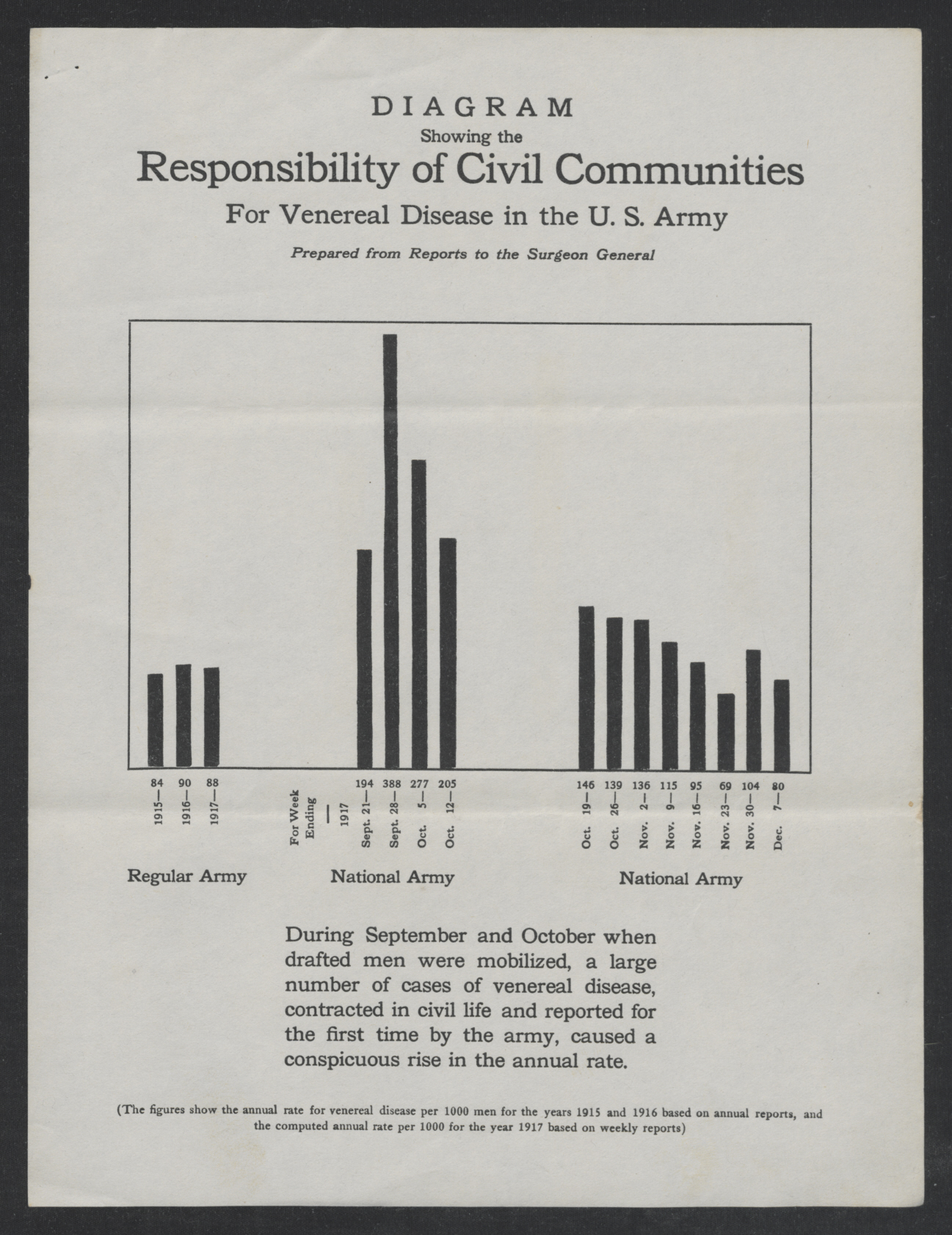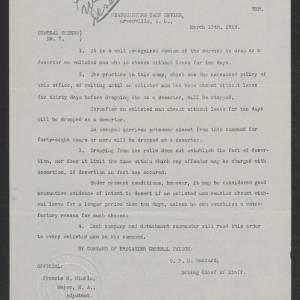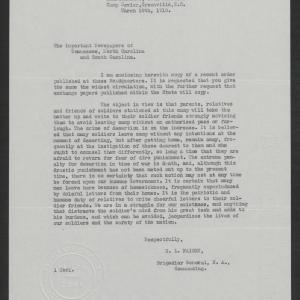Statement to The Council of National Defense
Relative to
RESPONSIBILITY OF STATES
for
VENEREAL DISEASES IN THE ARMY
1. During the twelve weeks ending December 7, 1917, there were reported from 31 cantonments, 21,742 new cases of venereal disease. The incapacitation of these men involves not only loss of time; in addition, it has cost the Government to keep them during the period of hospital confinement (which varies from one to eight weeks) more money than is required to maintain the entire command at Camp Dix (the cantonment in New Jersey with 20,859 men) plus an additional sum for medical treatment.
2. This is not all. Inevitably the disease will relapse in hundreds of these cases, in many instances after the men have been transported to France and presumably put into condition for service at the front, at a cost to the nation of probably $1500 for each man.
3. The important fact in this connection is that a large proportion of venereal disease cases originate, not in the camp or in communities surrounding the camp, but in cities and towns from which the men come and through which they pass on the way to camp. Reports from the Surgeon General’s Office show this. (See graph). The enormous cost to the Government on account of venereal disease is due largely, therefore, to conditions in civil life.
4. A study of the above facts shows an urgent need for an organized attack simultaneously by all states on the problem of venereal disease. When only a few states deal with the problem spasmodically, the result is to drive the principal carriers (prostitutes) from one state to another. State Boards of Health in each state, therefore, should now enlist the cooperation of State Councils of Defense, governors, mayors, chiefs of police, police judges, district attorneys, city attorneys, superintendents of hospitals and educators in an organized attack on these diseases.
Date:
-
Repository:
Collection:
Places:
»» »» New Jersey






